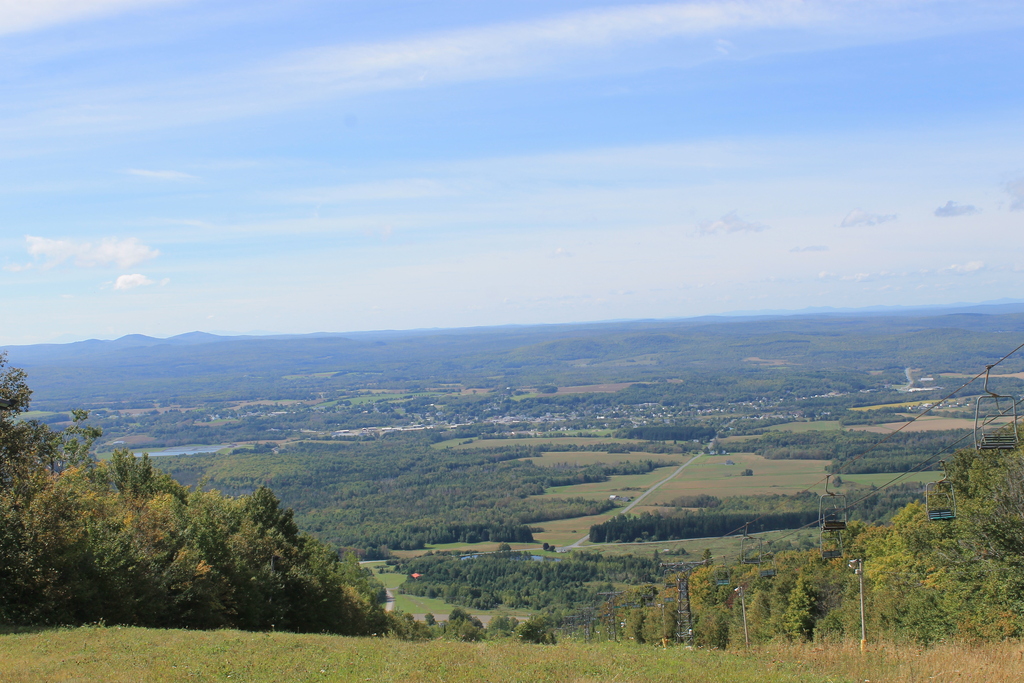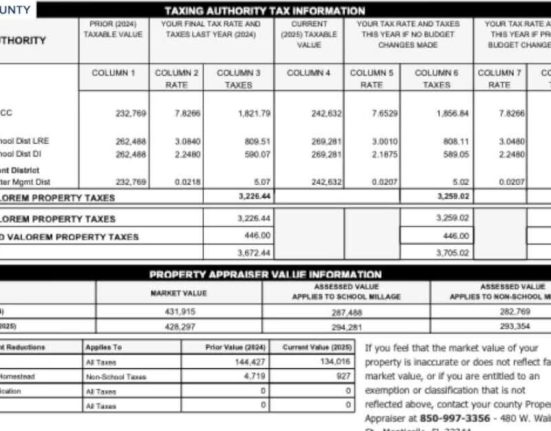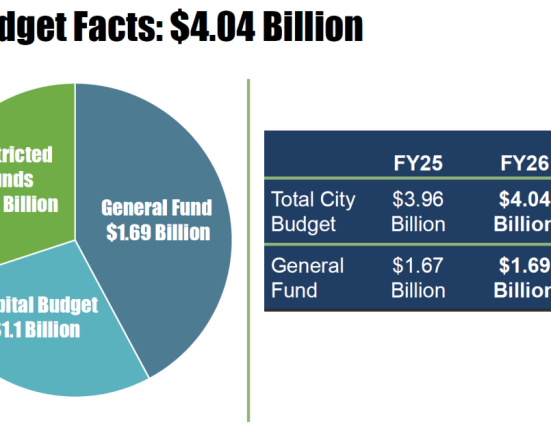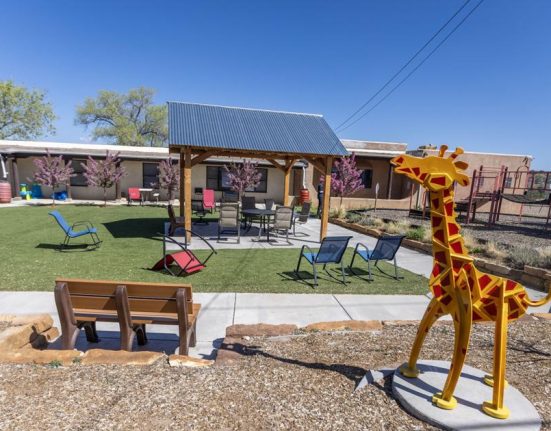
Looking west from the summit of Big Rock Mountain, toward the town of Mars Hill and central Aroostook County’s unorganized territories in September 2016. To the southwest, on left, are the highlands around Number Nine Mountain, the proposed site of a 119-turbine wind farm.
Property owners in the state’s unorganized territory were shocked when they recently got word from the state revenue services that their home and land values had increased, in some cases more than doubling.
For the territory’s residents, that has raised concern about potentially large property tax hikes later this year.
At the end of April, the state revenue services mailed a “Notification of Valuation Adjustment Letter” informing owners that their properties in the unorganized territory had been reassessed. And just two weeks ago, the actual 2025 revaluations arrived.
The updates varied by region and were based on a review and analysis of data from property sales and construction and other related costs, said Sharon Huntley, a spokesperson for the Department of Administrative and Financial Services, on Thursday afternoon.
Valorie Smith Starbird and her husband Keith Smith started building their small retirement home on Moosehead Lake, in a Piscataquis County section of the unorganized territory, in 2002. Now retired, the Harford’s Point couple is trying to figure out how the two small parcels they own on less than 2 acres now have a combined value of nearly $1 million.
Their two-bedroom home sits on a 0.74-acre waterfront parcel that was previously valued at $314,200, but it came in at $663,520. The land went from $140,410 to $418,690, and the house from $198,790 to $269,830, Keith Smith said.
And their back lot, which is a bit rocky with no structures and no waterfront, went from $25,950 to $160,600. The state has also been taxing the couple for years on 1.7 acres, but a recent survey showed the parcel is actually 0.90 acres, Smith said.
“Nobody can tell me at Maine Revenue Services why the jump other than they reassessed it,” said Smith. “We basically went from a valuation — for two properties under 2 acres — of $350,000 to almost $950,000.”
While the state suggested to Smith it was too soon to worry about how this new valuation will affect his taxes, he fears that they will go up with such high assessments.
Maine’s unorganized territories cover slightly more than half of the state, with 9,000 year-round residents and many more seasonal property owners. There are 429 townships in the unorganized territory, which also includes the Baxter State Park area and many coastal islands. They lack the services or amenities of the state’s municipalities, relying instead on state and county government.
Much like municipal assessors, the Maine Revenue Service is responsible for assessing and collecting property taxes in the unorganized territory. It maintains 23,769 accounts for real estate tax and 814 for personal property, according to the state.
Ever since Smith and Smith Starbird got the news of their valuation hike, the couple has been trying to learn how the state calculated such a dramatic increase, but even calls to the office of a state legislator — Sen. Stacey Guerin, R-Penobscot — did not shed more light on the issue.
Is it because they have 113 feet of frontage on Moosehead Lake, or did two neighboring cabins transformed into short-term rentals figure into the calculation?
Smith recently retired from the staff of the state’s Land Use Planning Commission, and he argued that commercial operations — such as short-term rentals through AirBnB — are driving up property values, hurting taxpayers and forcing out people who have lived in the unorganized territory for years.
According to Huntley, the new property values depended on what data was available.
The state attempts to compare sales data from the same township, county or body of water for the most accurate assessments possible, she said.
“That’s not always possible. If there is not sufficient data, we generally will look across the county, or for similar bodies of water, to arrive at the numbers,” Huntley said.
Adding to the concern for residents of the unorganized territory is that it had another revaluation in 2020, even though the state constitution only requires one every 10 years — but allows for more frequent ones.
Huntley said there are a number of provisions at play, and the state is also required by statute to maintain a certain ratio of assessments to market value. The increases since 2020 are a reflection of the growth in the real estate market during that five-year period, she said, adding that as market values increase, adjustments must be made to meet statutory standards.
“Also, with an area as large as the unorganized territory, market values often rise at different rates in different areas,” Huntley said. “If we don’t make adjustments to reflect these differences, there will be inequity between the different taxpayers within the unorganized territory and how the taxes are allocated.”
As required by Maine Revenue Services and detailed in the recent letter, all unorganized territory property owners must complete and file an inventory form through the Maine Tax Portal by June 1 to have an assessor reconsider an adjusted valuation. Property owners seeking an adjustment must make an appointment to meet with an assessor at one of several designated locations around the unorganized territory.
According to Huntley, the purpose of the appointments is for taxpayers to explain to staff the changes that were made to properties.
It is not an alternative to the abatement and appeal process, but more a way for taxpayers to get their questions answered about the changes and how they were determined, she said.
“It also gives taxpayers an opportunity to review the details that we have on file for their properties and make any corrections, since many properties in the unorganized territory are seasonal and less accessible than permanent residences,” Huntley said.
Smith Starbird and Smith filed their inventory form and are currently gathering as much information as possible — property records, photos, surveys, dimensions — before meeting with an assessor at the Shirley town hall later this month.
“We built this place,” Smith said. “It was a raw piece of property. We homesteaded this place. We are residents. We live here, and you’re going to double our taxes? That’s just wrong.”
Kat Taylor of Argyle Township, who is also retired, lives in the unorganized territory. Her modest property’s value increased 40 percent in 2020, while her brother’s went up 50 percent, she said.
This year, Taylor’s land value rose from $25,600 to $43,690, and her house’s from $139,820 to $185,970, she said.
”We simply can’t continue to get blindsided by the MRS in what they call ‘Just Value’ when we cannot as a collective voice address our concerns to the MRS,” Taylor said. “Our services remain the same, but we have no power over our property tax increases; essentially taxation without representation.”
People living in the unorganized territory have few government services, and Taylor questioned why assessments are not based on concrete criteria such as access to grocery stores, public safety agencies, post offices and waste disposal.
“Using criteria like these would give a truer assessment of property value,” she said. “After all, they are some of the things our taxes pay for. I’m sure the UT landowners can come up with more if you take the time to ask and listen.”
The Maine Revenue Services’ property tax division held in-person meetings about the revaluations in Kingfield, Rangeley and Bethel. Upcoming meetings are planned at the following dates and locations, with appointments required:
June 9 — Franklin Town Office, 34 Main Street, Franklin, 10 a.m. – 4 p.m.
June 10 — East Machias Municipal Building, 571 Main St.,East Machias, 10 a.m. – 4 p.m.
June 11 — Stacyville Town Office, 414 Sherman Station Road, Stacyville, 9 a.m. – 3 p.m.
June 12 — New Canada Town Office, 1809 Caribou Road, New Canada, 10 a.m. – 4 p.m.
June 16 — Shirley Town Hall, 25 West Road, Shirley, 10 a.m. – 4 p.m.
June 17 — Sebec Town Office, 29 North Road, Sebec, 10 a.m. – 4 p.m.
June 18 — Eastern Maine Community College, 1 Dirigo Drive, East Millinocket, 10 a.m. – 4 p.m.






